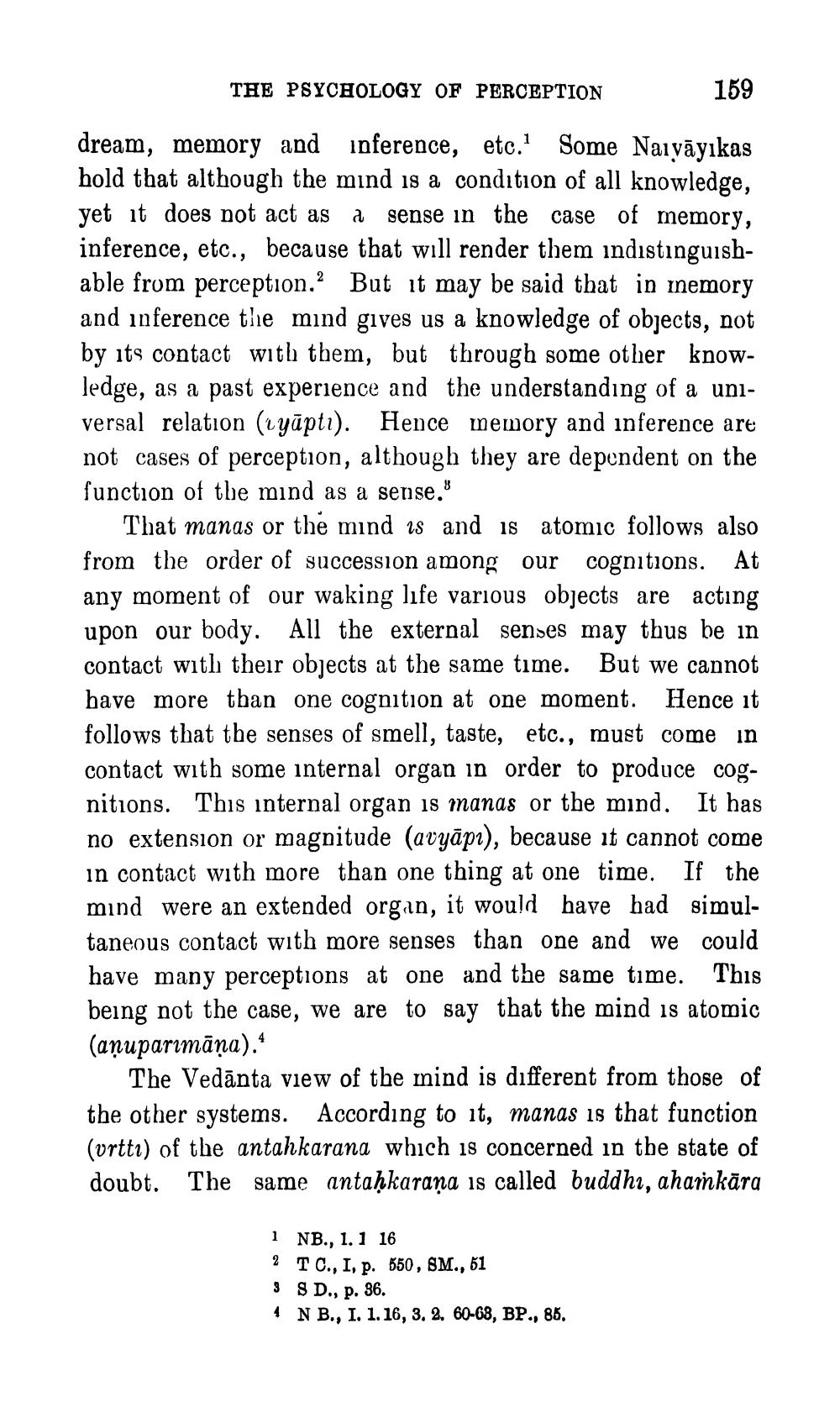________________
THE PSYCHOLOGY OF PERCEPTION
159
dream, memory and inference, etc. Some Naivāyikas hold that although the mind is a condition of all knowledge, yet it does not act as a sense in the case of memory, inference, etc., because that will render them indistinguishable from perception. But it may be said that in memory and inference the mind gives us a knowledge of objects, not by its contact with them, but through some other knowledge, as a past experience and the understanding of a universal relation (2 yūpti). Hence memory and inference are not cases of perception, although they are dependent on the function of the mind as a sense.'
That manas or the mind is and is atomic follows also from the order of succession among our cognitions. At any moment of our waking life various objects are acting upon our body. All the external senses may thus be in contact with their objects at the same time. But we cannot have more than one cognition at one moment. Hence it follows that the senses of smell, taste, etc., must come in contact with some internal organ in order to produce cognitions. This internal organ is manas or the mind. It has no extension or magnitude (avyāpi), because it cannot come in contact with more than one thing at one time. If the mind were an extended organ, it would have had simultaneous contact with more senses than one and we could have many perceptions at one and the same time. This being not the case, we are to say that the mind is atomic (aņuparimāņa).
The Vedānta view of the mind is different from those of the other systems. According to it, manas is that function (vrttı) of the antahkarana which is concerned in the state of doubt. The same antaḥkaraṇa is called buddhi, aharnkāra
1 NB., 1.1 16 2 TC., I, p. 550, SM., 51 3 SD., p. 36. 4 N B., I. 1. 16, 3. 2. 60-68, BP., 85.




